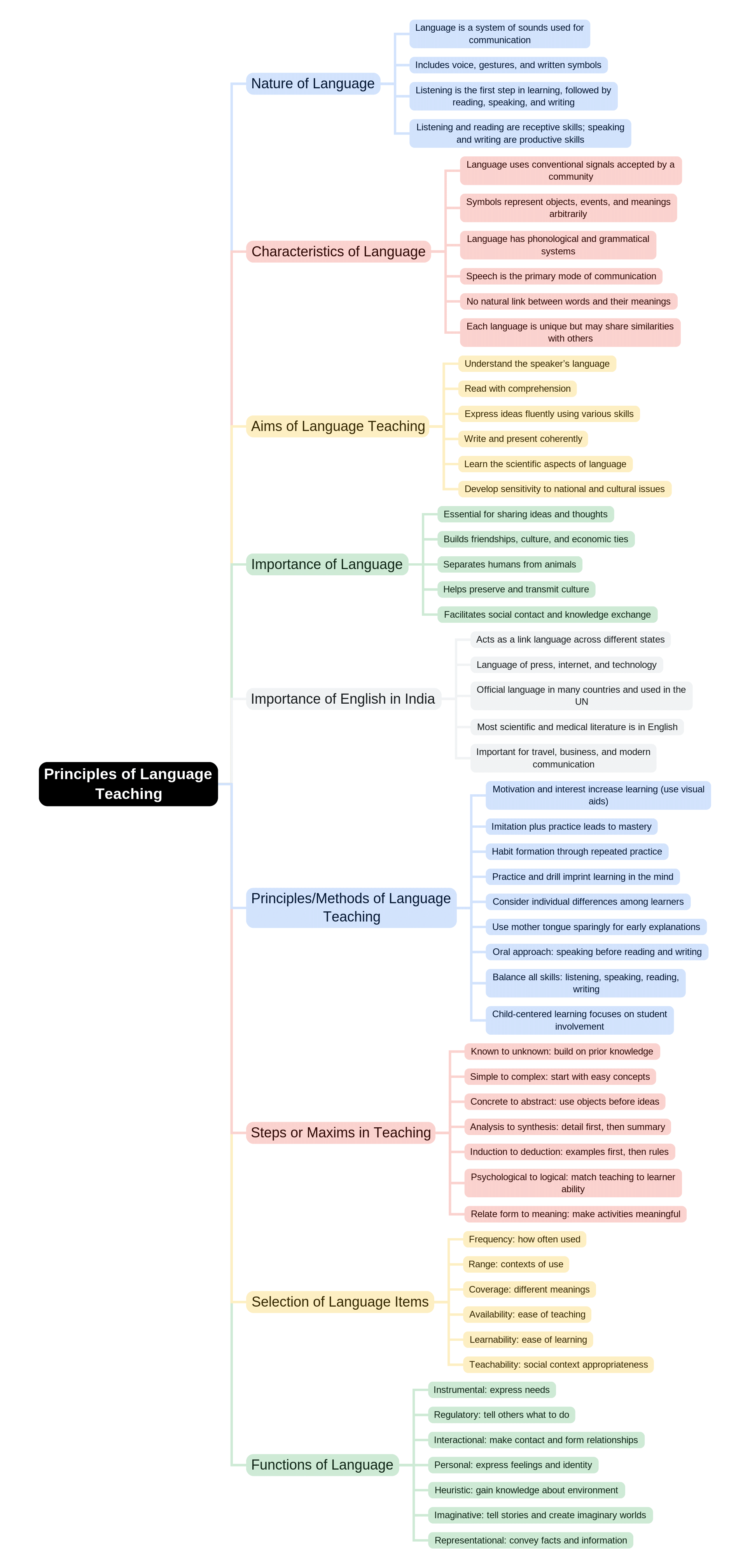CTET & State TET Exam > CTET & State TET Notes > English Language & Pedagogy for CTET & TET Exams > Mind Map: Principles of Language
Mind Map: Principles of Language | English Language & Pedagogy for CTET & TET Exams - CTET & State TET PDF Download

The document Mind Map: Principles of Language | English Language & Pedagogy for CTET & TET Exams - CTET & State TET is a part of the CTET & State TET Course English Language & Pedagogy for CTET & TET Exams.
All you need of CTET & State TET at this link: CTET & State TET
|
47 videos|208 docs|47 tests
|
FAQs on Mind Map: Principles of Language - English Language & Pedagogy for CTET & TET Exams - CTET & State TET
| 1. What are the key principles of language development? |  |
Ans. The key principles of language development include the understanding of phonetics, grammar, semantics, and pragmatics. Phonetics deals with the sounds of language, grammar outlines the structure and rules, semantics focuses on meaning, and pragmatics examines language use in context. Together, these principles help in comprehending how language is acquired and utilized in communication.
| 2. How does the environment influence language acquisition? |  |
Ans. The environment plays a crucial role in language acquisition by providing exposure to language through interaction, socialization, and cultural context. Children learn language by listening to and mimicking those around them. Factors such as parental involvement, linguistic input, and socio-economic status can significantly affect the pace and success of language development.
| 3. What is the significance of linguistic relativity in understanding language? |  |
Ans. Linguistic relativity, often associated with the Sapir-Whorf hypothesis, suggests that the structure and vocabulary of a language influence its speakers' perception and categorization of experiences. This principle emphasizes that language shapes thought processes and cultural perspectives, highlighting the interconnectedness between language and worldview.
| 4. What are the stages of language development in children? |  |
Ans. The stages of language development in children typically include the cooing stage (around 2-3 months), babbling stage (around 4-6 months), one-word stage (around 12 months), two-word stage (around 18-24 months), and the telegraphic speech stage (around 24-30 months). These stages illustrate the progression from basic sounds to complex sentences, reflecting cognitive and social development.
| 5. How do bilingual individuals process language differently? |  |
Ans. Bilingual individuals often process language through a more complex cognitive framework, allowing them to switch between languages and contexts seamlessly. Research indicates that bilingualism can enhance cognitive flexibility, problem-solving skills, and memory. However, it may also lead to code-switching, where speakers alternate between languages within a conversation, reflecting their linguistic adaptability.
Related Searches
















